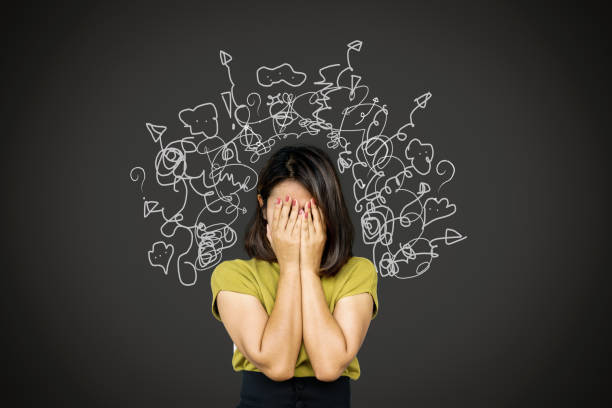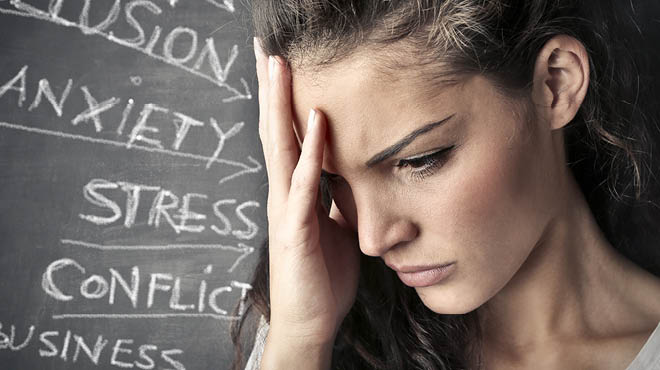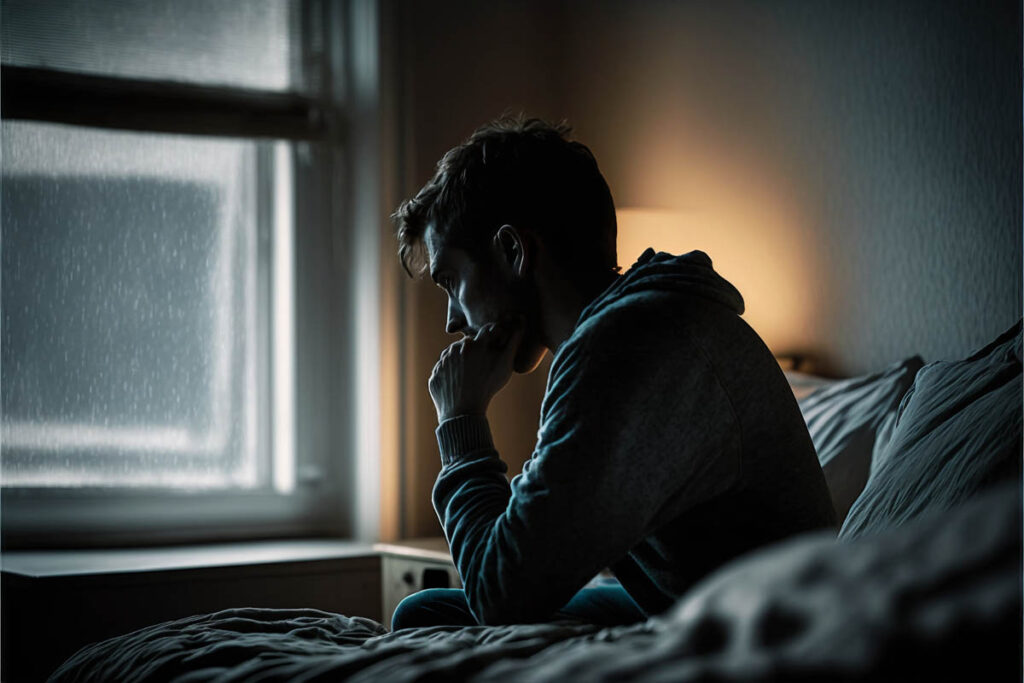In this post, we will discuss regarding impact that anxiety has on our life and some tips and tricks to deal with it, but it if it reaches chronic stage, then medical help becomes a necessity here.
Anxiety
Anxiety is a feeling of fear, dread, and uneasiness. It might cause you to sweat, feel restless and tense, and have a rapid heartbeat.

It can be a normal reaction to stress. For example, you might feel anxious when faced with a difficult problem at work, before taking a test, or before making an important decision.
Impacts of anxiety
1. Insomnia
Insomnia, also known as sleeplessness, is a sleep disorder where people have trouble sleeping.

They may have difficulty falling asleep, or staying asleep for as long as desired. Insomnia is typically followed by daytime sleepiness, low energy, irritability, and a depressed mood.
2. Restlessness
Psychomotor agitation can be defined as a feeling of excitement, and/or distress, which is associated with increased motor activity due to psychiatric/organic causes
3. Addiction
There’s a very high overlap between people with anxiety disorders and people with substance use disorders.
4. Difficulty concentrating
Individuals who struggle with anxiety often experience symptoms of mental confusion, foggy thinking, forgetfulness, and difficulty concentrating.

While these symptoms may ebb and flow depending on the day and the stress load, they can be very frustrating for those with anxiety disorder.
5. Fatigue
Fatigue describes a state of tiredness, exhaustion or loss of energy. Fatigue is sometimes associated with medical conditions including autoimmune disease, organ failure, chronic pain conditions, mood disorders, heart disease, infectious diseases, and post-infectious-disease states.
6. Chronic condition
Chronic anxiety can lead to serious mental health problems―depression, substance use, and even suicide. It can interfere with the ability to focus and learn
7. Irritability
Irritability is the excitatory ability that living organisms have to respond to changes in their environment.

The term is used for both the physiological reaction to stimuli and for the pathological, abnormal or excessive sensitivity to stimuli.
8. Unexplained aches and pains
Sharp pain, a dull ache or a feeling of pressure around the head and eyes are common symptoms associated with anxiety. As anxiety can also upset the balance of hormones in the body, some women notice an increase in migraines, as they can be triggered by changes in hormones.
9. Depression
Depression is a mental state of low mood and aversion to activity.

It affects more than 280 million people of all ages. Depression affects a person’s thoughts, behaviour, feelings, and sense of well-being.
Here are the tips to cure anxiety
Are you tired of feeling held back by anxiety? You’re not alone! In today’s fast-paced world, it’s easy to get caught up in a cycle of worry and fear. But the good news is that there are many effective ways to manage and reduce anxiety. And the best part? You don’t have to do it alone!
Here are ten magical tips to help you take control of your anxiety and start living the life you deserve:
1. Breathe Deeply
Take a few minutes each day to focus on your breath. Inhale deeply, hold it for a few seconds, and exhale slowly. This simple technique can help calm your mind and body.
2. Get Moving
Exercise is a natural mood-booster!

Find an activity you love, whether it’s walking, yoga, or dancing, and make it a regular part of your routine.
3. Eat to Feel Good
Fuel your body with whole, nutritious foods that promote mental well-being. Avoid sugary and processed foods that can exacerbate anxiety.
4. Find Your Calm
Mindfulness and meditation can help you stay present and focused.

Try guided meditation, progressive muscle relaxation, or mindfulness-based stress reduction (MBSR) to find your inner calm.
5. Limit the Extras
While a glass of wine or a cup of coffee might seem relaxing, both can actually increase anxiety. Try limiting or avoiding them to see how you feel.
6. Sleep Tight
Aim for 7-9 hours of quality sleep each night to help regulate your mood.

Establish a bedtime routine, keep your sleep environment comfortable, and avoid screens before bed.
7. Stay Connected
Surround yourself with loved ones who support and uplift you. Sharing your feelings and concerns with trusted friends and family can provide relief and perspective.
8. Do What You Love
Engage in activities that bring you joy and distract your mind from anxious thoughts.

Whether it’s reading, painting, or playing music, make time for hobbies that make you happy.
9. Think Positive
Challenge negative thoughts and focus on positive affirmations. Keep a gratitude journal to remind yourself of the good things in your life.
10. Seek Help When Needed
If your anxiety is overwhelming or persistent, don’t hesitate to seek help from a mental health professional.

They can provide you with the tools and support you need to manage your anxiety.
And as a bonus tip, Limit Your Screen Time! Excessive social media use can heighten anxiety, so set boundaries and take regular breaks from screens to reduce stress.
Remember, managing anxiety takes time and patience. Be kind to yourself and don’t be afraid to ask for help. With these tips, you can start living a calmer, more balanced life.
Alcohol: A Double-Edged Sword for Health
Prevent Pimples: Simple 10 Home Care Tips to Achieve Clearer Skin
